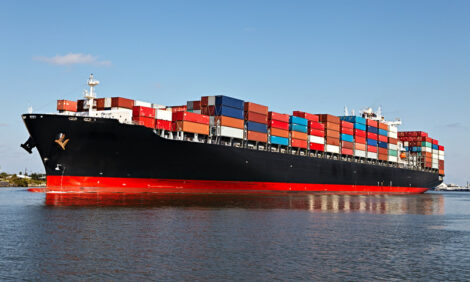



Beef from Brazil is only a secondary target – Irish beef bigger problem for establishment of domestic premiums
FARMING UK - Even though the National Beef Association first highlighted the dubious environmental, labour, welfare and bio-security practices surrounding the production of Brazilian beef two years ago it is sure that its importation creates more of a problem for the beef industry in the Republic of Ireland (ROI) than it does in Scotland and the rest of the UKAnd the NBA is equally certain that the weight and discount of the huge tonnages of beef imported from the ROI represent a greater threat to the long term security of the domestic beef industry than the current level of imports from Brazil.
"It is quite obvious there are serious flaws in the bulk of Brazilian beef production and that important questions have to be asked about the diligence, and resolve, of the European Commission's Food and Veterinary Office (FVO) inspectors when they visit that country," explained NBA chairman, Duff Burrell.
"But imports from Brazil are more of an issue for the Irish than they are for us and the Scottish and UK industries must not let Irish concerns overshadow the fact that their biggest problem is imports from the ROI and the way they are used by Anglo-Irish processors and their big retail customers to undermine the value of Scottish and other home produced beef."
"We must not forget that imports from the ROI account for 60 per cent of the 280,000 tonnes of beef imported into the UK each year and that a huge proportion of this is sold through our supermarkets."
"In contrast only 14 per cent of imports are from Brazil and the bulk of this goes through secondary distributors and caterers."
According to the NBA the major British retailers have already recognized the flaws in Brazilian production, have veered away from it, and take their fresh steak top ups from Argentina and Uruguay instead.
"Just six per cent of imported fresh beef sold through UK supermarkets is from Brazil but 70 per cent of fresh beef imports sold through the same outlets is from the ROI – and all of that is taken from R4 steers and heifers that are at least ten per cent, or 20-21p per dwkg, cheaper than those produced in Scotland and other parts of the UK," said Mr Burrell. "Just six per cent of imported fresh beef sold through UK supermarkets is from Brazil but 70 per cent of fresh beef imports sold through the same outlets is from the ROI – and all of that is taken from R4 steers and heifers that are at least ten per cent, or 20-21p per dwkg, cheaper than those produced in Scotland and other parts of the UK," said Mr Burrell.
"The domestic industry's priority should be to first of all take advantage of the growing consumer preference for home produced beef, and highlight the contrast between it and imports from the ROI, so multiple retailers introduce more differentiation between these two products instead of working with their dual-nationality suppliers to play one market off against the other and sell UK and ROI beef for the same, or a similar, price which hampers domestic premiums."
"Work does have to be done in the catering sector to prevent compromised Brazilian beef being presented as home produced or being allowed to undermine the menu market for the high integrity, high provenance, home product beef."
"But these latter endeavours have to be kept in perspective. They are not as important as the former and so the noise being generated in Ireland over flaws in Brazilian beef production should not be allowed to divert the domestic industry from tackling the serious disadvantages that are the result of allowing the continued presentation of discounted Irish beef at the same price level as our own – especially as some of its farm assurance requirements fall short of those demanded in all parts of the UK."
Take a look at our previous news on this storyline by, clicking here.
TheCattleSite News Desk


